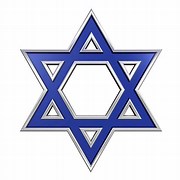The last newsletter was on 1 October 2024, just before Rosh Hashanah. This was the first newsletter in the new style, together with the Israeli community. Four months have now passed and it is time for an update. All the high holidays and Hanukkah are long behind us. We celebrated Hanukkah twice this year, in shul and in Roermond town hall. The hospitality of Roermond was exceptional and made me feel that we have people around us. The mayor also wrote about her experiences of Hanukkah, which you can read later in this newsletter.
As I write this foreword, the ceasefire between Israel and Hamas has just come into effect and the first hostages have been released. The ceasefire leaves me with mixed feelings. Of course, I am very happy that hostages have been released, but when I see how the Hamas fighters are coming out of their holes, I realise that Hamas is by no means defeated. When will the next attack come? It seems not to be a question of whether that attack will come, but rather when.
On 20 January, I watched the inauguration of President Trump. There will certainly be a wind of change in the United States and in the world.
Whether that wind will be favourable for Israel remains to be seen. Trump seems to be a kosher friend of Israel. During his first term as president, Trump moved the American embassy from Tel Aviv to Jerusalem and also recognised Israel’s claims to the Golan Heights. As Salomon Bouman said, Trump considers the truce between Israel and Hamas to be his baby.
Netanyahu and Hamas must stay out of that. Netanyahu must therefore take into account that Trump will not accept Israel resuming the war against Hamas after the implementation of the first phase of the truce. I think Trump is mainly out for his own success and is pro-Israel as long as Netanyahu does not stand in his way.
There is still unrest at the university. The board of Maastricht University has developed a test to investigate whether partner universities contribute to gross human rights violations. Eli Sapir, a political scientist at Maastricht University (UM), argued that this test is aimed at one country and one country alone: Israel.




